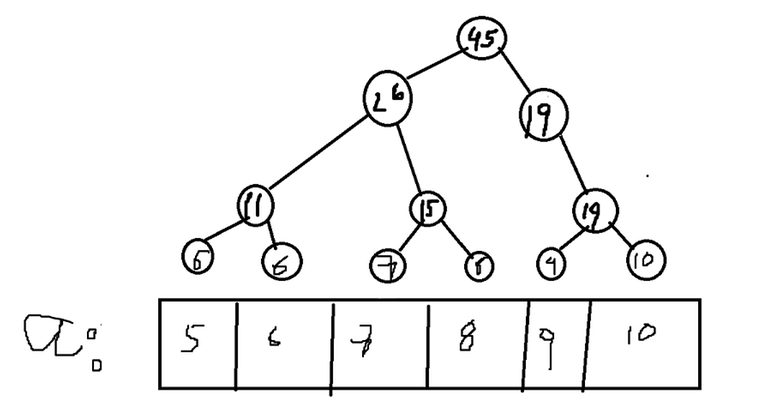The segment tree is a very useful algorithm when doing many RMQ problems, we have the following problem: https://codeforces.net/contest/1199/problem/D how to solve it? Well, here is the segment tree to help us, but what is the segment tree? Well, it is a tree where each node is F(x, y) being x and y stored in its 2 children here is an example and the implementation:

#include <bits/stdc++.h>
#include <ext/pb_ds/assoc_container.hpp>
#include <ext/pb_ds/tree_policy.hpp>
#ifdef LOCAL
#include "debug/debug.h"
#include "float/floatx.hpp"
#include "ttmath/ttmath.h"
#include "json/json.hpp"
#include <omp.h>
#include <unistd.h>
#include <windows.h>
using namespace flx;
using namespace ttmath;
using namespace nlohmann;
using namespace literals;
#include "win/api.hpp"
#endif
#ifndef LOCAL
#define debug
#endif
#define pb push_back
#define ll long long
#define ld long double
#define fx ld // antes estaba otra cosa
#define ull unsigned ll
#define S second
#define F first
using namespace std;
using namespace chrono;
using namespace __gnu_pbds;
#define THREAD_NUM 32
#define MOD 1000000007
const ll INF = 1e18, MAXN = 5e5 + 10;
typedef tree<ll, null_type, less_equal<ll>,
rb_tree_tag, tree_order_statistics_node_update>
TREE;
ll a[MAXN], st[MAXN * 4], lazy[MAXN * 4];
ll F(ll a, ll b)
{
return a + b;
}
void build(ll n, ll l, ll r)
{
lazy[n] = 0;
if (l == r)
{
st[n] = a[l];
return;
}
ll m = (l + r) / 2;
build(n * 2, l, m);
build(n * 2 + 1, m + 1, r);
st[n] = F(st[n * 2], st[n * 2 + 1]);
}
void prop(ll l, ll r, ll n)
{
st[n] += lazy[n] * (r - l + 1);
if (l != r)
{
lazy[n * 2] = lazy[n];
lazy[n * 2 + 1] = lazy[n];
}
lazy[n] = 0;
}
void update(ll n, ll l, ll r, ll a, ll b, ll val)
{
prop(l, r, n);
if (l > b || r < a)
return;
if (l >= a && r <= b)
{
lazy[n] += val;
prop(l, r, n);
return;
}
ll m = (l + r) / 2;
update(n * 2, l, m, a, b, val);
update(n * 2 + 1, m + 1, r, a, b, val);
st[n] = F(st[n * 2], st[n * 2 + 1]);
}
ll query(ll n, ll l, ll r, ll a, ll b)
{
prop(l, r, n);
if (l > b || r < a)
return 0;
if (l >= a && r <= b)
return st[n];
ll m = (l + r) / 2;
ll q1 = query(n * 2, l, m, a, b);
ll q2 = query(n * 2 + 1, m + 1, r, a, b);
return F(q1, q2);
}






